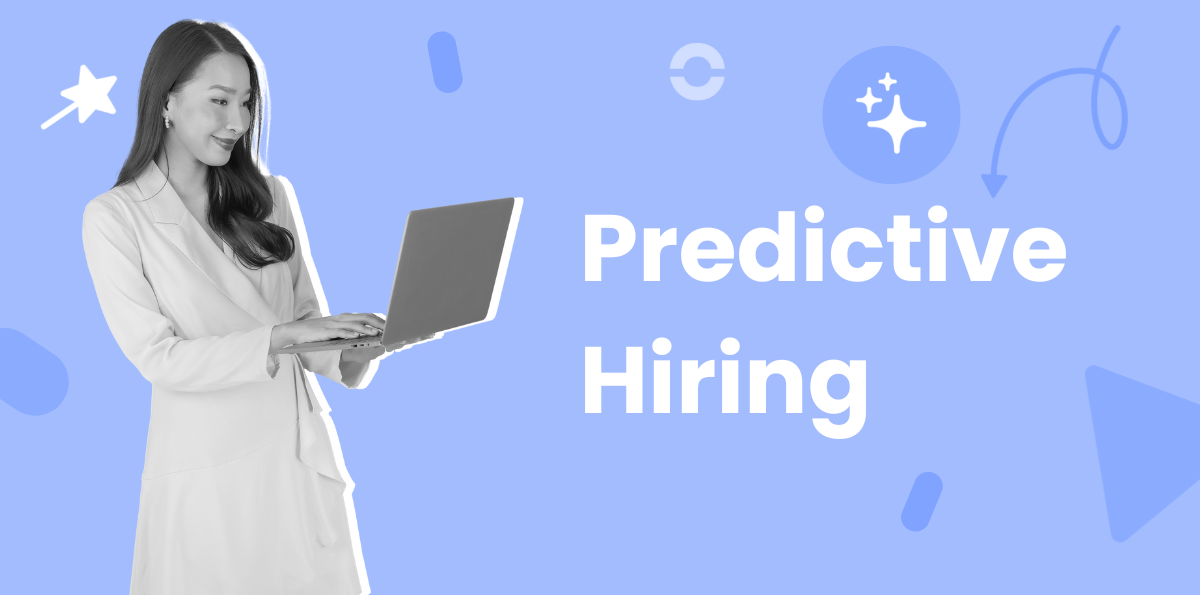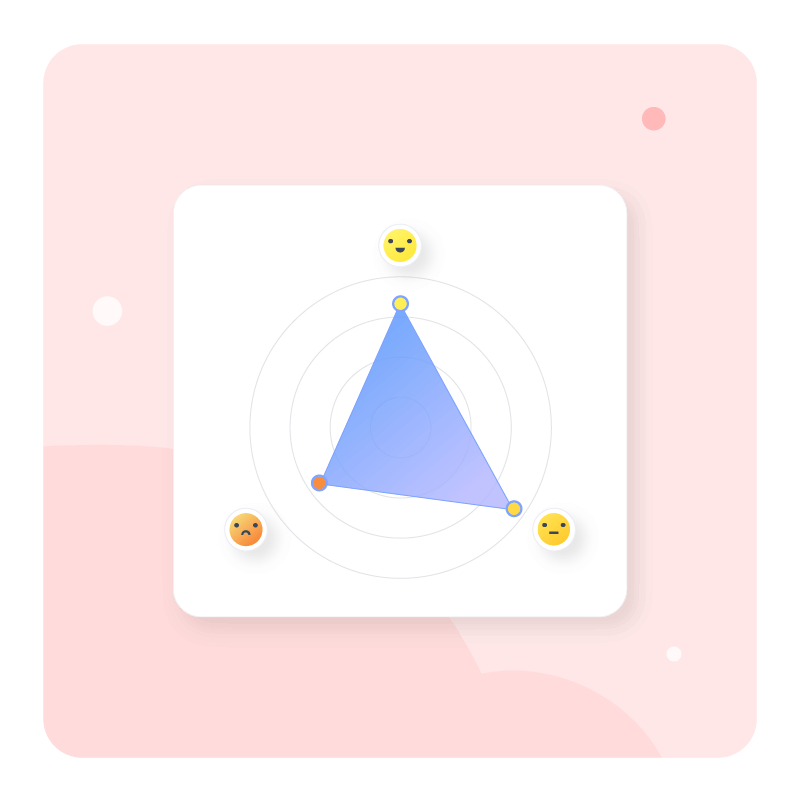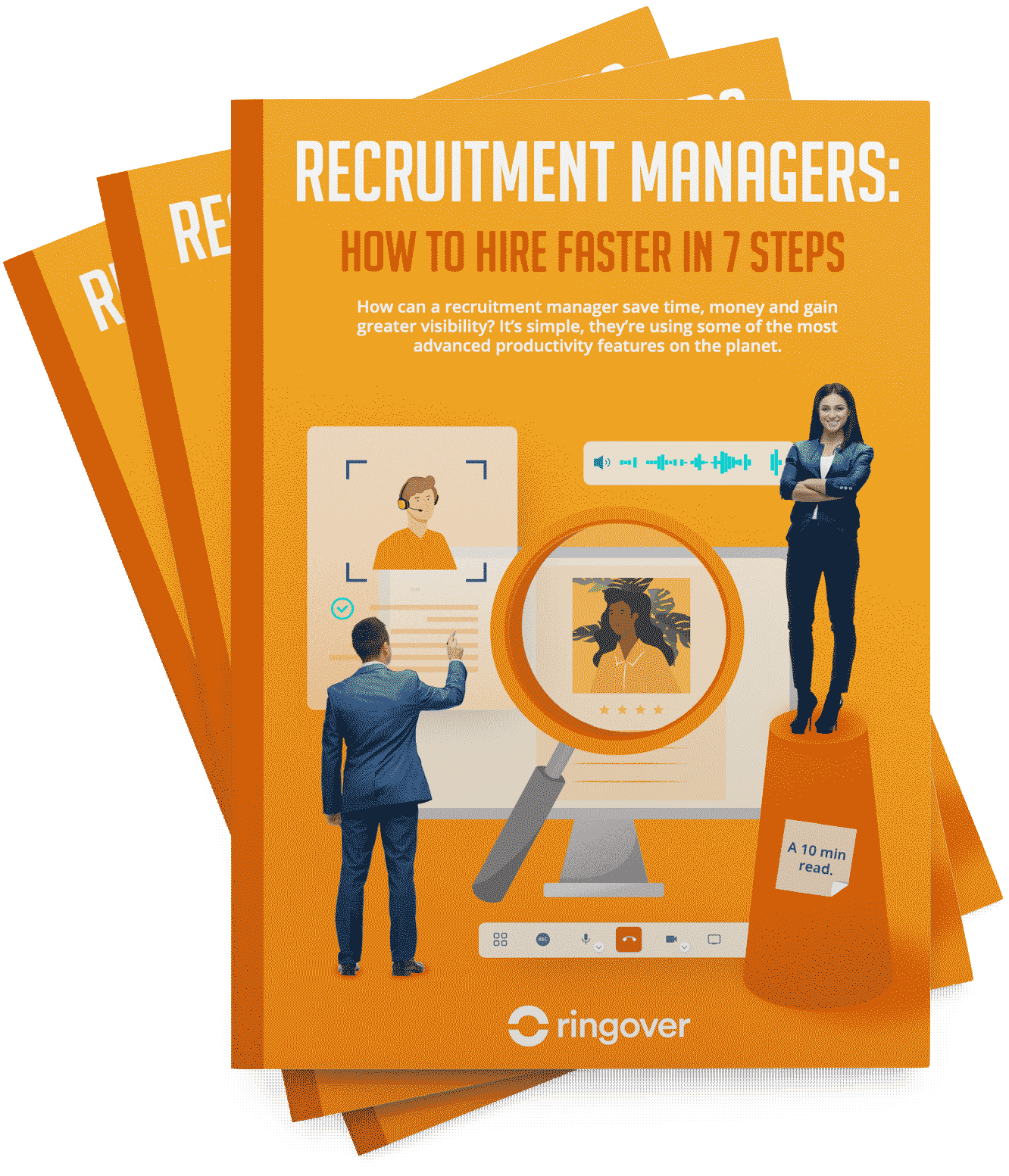Summary
Employing predictive recruitment strategies can significantly diminish biases during the hiring process, elevate the overall quality of hires, and optimise both time and resources. In this article, we delve into the essence of predictive hiring, its operational mechanics, and the compelling reasons why it should be integrated into your recruitment endeavours.
Try Ringover for recruitingWhat is predictive hiring?
Predictive hiring utilises data and analytics to predict how well candidates will perform in specific roles and how well they will fit into these roles. This approach helps in minimising biases in hiring, enhancing the quality of hires, and conserving time and resources. It employs artificial intelligence (AI) algorithms and machine learning to sift through extensive data sets, identifying patterns that are indicative of successful hires via AI analytics.
This method depends on comprehensive data and sophisticated algorithms to pinpoint candidates that are most suitable for a role, recommended to recruiters and hiring managers. Essentially, predictive hiring applies data analytics within the recruitment and selection framework of an organisation. It involves analysing historical hiring data to forecast future outcomes, such as job performance or potential spikes in hiring needs.
By analysing candidate profiles, skills, experiences, and other pertinent information, AI hiring tools can effectively screen and prioritise candidates for specific positions. This process not only saves recruiters a significant amount of time and effort but also ensures a more accurate match. AI algorithms compare candidates to profiles of successful employees, spotting patterns and predictors of success, thereby streamlining the hiring process.
The term "predictive hiring technology" encompasses the use of data-centric methods and tools, including predictive analytics, artificial intelligence, and machine learning, to evaluate job applicants and predict their likely performance and success within an organisation.
To implement predictive hiring, a conversation intelligence software like Empower by Ringover can help you identify patterns among candidates and recruiters to improve the overall process.
Steps of predictive hiring process
Predictive hiring is a continuous cycle, encompassing various steps designed to enhance recruitment results. Below are key stages in the predictive hiring process you can implement to refine your hiring strategy:
1. Define the Job
Begin by comprehensively understanding the job's requirements, responsibilities, and criteria for success. Utilising a job assessment tool, like the one from The Predictive Index, allows for input from various stakeholders to create a job target. This target reflects the ideal behavioural and cognitive profiles needed for the role.
2. Write and Post the Job Description
With the job target as your guide, draft a compelling job description that outlines essential qualifications and desirable attributes, alongside insights into the company culture and work pace. Crafting a personalised and engaging job ad will attract suitable candidates. Distribute the job posting across multiple channels using social recruiting principles and using an omnichannel contact centre software.
3. Screen and Assess Candidates
Upon receiving applications, leverage a predictive hiring tool like Empower by Ringover for screening and ranking applicants based on their role suitability. Empower by Ringover, a conversation intelligence software, analyses candidates' phone call interactions, offering transcripts, summaries, and recommendations while integrating with Ringover's business phone system to boost productivity during phone screenings. This tool streamlines the screening process, allowing recruiters to focus on the most promising candidates.
4. Interview Candidates
Narrow down your candidate pool and utilise behavioural data along with strategic interviews to refine your selection process. Employ the job target and assessment results to formulate relevant and consistent interview questions, assessing each candidate's role suitability.
Empower by Ringover can also be used to record and analyse interviews, providing insights into the candidates' personalities, motivations, and communication skills thanks to sentiment analysis.
5. Make Data-driven Hiring Decisions
Post-interview, employ the data and insights gathered from predictive hiring tools to compare and evaluate candidates. Consider the match score, sentiment analysis, topics discussed, staffing analytics, and recommendations from Empower by Ringover to identify the candidate most likely to excel in the role and integrate well within the organisation. Additionally, this data supports transparent justification and explanation of your hiring choices to stakeholders and candidates alike.
Benefits of Predictive Recruitment: Why Use It?
Predictive recruitment transcends the realm of buzzwords to become a robust strategy that enhances your recruitment process and propels your business forward. Utilising predictive analytics and AI tools enables the harnessing of data and insights for improved and accelerated hiring decisions. Explore the pivotal advantages of predictive recruitment:
- Better hiring decisions: Predictive recruitment and conversation intelligence empowers you to select candidates perfectly suited for the job. Through data and algorithms, assess candidates' skills, experience, personality, and organisational fit. Comparing candidates with the profiles of successful employees helps pinpoint future performance indicators, reducing hiring mistakes and elevating hire quality.
- Saves time and money: Predictive recruitment streamlines the hiring process, making it quicker and more cost-effective. AI tools automate the screening and ranking of candidates, conserving valuable time and effort. Predictive analytics also enable forecasting of hiring needs and optimization of the recruitment budget, thereby diminishing turnover costs and boosting productivity.
- Less bias: Predictive recruitment minimises unconscious biases in hiring decisions. Data and objective criteria like recruitment KPIs serve as the basis for evaluating candidates, moving away from subjective opinions or gut feelings. Additionally, predictive analytics play a crucial role in monitoring and advancing diversity and inclusion initiatives, promoting a fair and equitable hiring process.
- Keeps employees longer: Predictive recruitment aids in retaining talent by ensuring hires are well-matched to their roles, likely leading to longer tenure at the company. Predictive analytics facilitate the alignment of candidates with roles that suit their skills and aspirations, thereby increasing engagement and satisfaction. Furthermore, predictive analytics are instrumental in identifying and addressing factors critical to employee retention, including performance, feedback, and career development opportunities.
Predictive Hiring Interview Questions
Predictive hiring plays a pivotal role in identifying the right candidate for a job by focusing on asking the right interview questions. These questions are crafted to evaluate a candidate's skills, personality, attitude, accountability, and culture fit through a lens of data and analytics.
Below, we offer a range of predictive hiring interview questions tailored for different aspects of a candidate's profile, which you can customise to meet your hiring objectives.
Skills
These questions are designed to assess the candidate's capability in handling the tasks and responsibilities tied to the position. They can involve work samples, case studies, or simulations. For instance:
- Design a marketing campaign for a new product launch.
- Handle a customer complaint over the phone.
- Write code to automate a repetitive task.
Personality
To gauge the behavioural and cognitive aspects of a candidate, recruiters can ask questions like:
- Do you prefer working independently or as part of a team?
- What are your strengths and areas you're seeking to improve?
- How do you manage stress and pressure at work?
Attitude
Positive work disposition is key, and it can be measured through behavioural interview questions that explore:
- A challenging work situation and how it was managed.
- Receiving feedback and the response to it.
- A moment of pride or happiness at work.
Accountability
Evaluating a candidate's responsibility level can be achieved by discussing goals, achievements, failures, and decision-making processes. Questions might include:
- A time when an aggressive goal wasn't met and how it was addressed.
- Handling work-related mistakes or errors.
- Making decisions with limited information or resources.
Culture Fit
Assessing whether a candidate's values align with those of the organisation can involve questions about:
- Reasons for wanting to work at the organisation and what attracted them to the role.
- Definitions of success and how it is measured.
- Work ethic and values, and how they align with the organisation's.
Conclusion
Predictive hiring represents the future of recruitment, embodying a strategy that leverages data and analytics to predict the future performance and suitability of candidates for specific roles. This innovative approach not only enhances the quality of hiring decisions but also conserves time and financial resources, minimises bias, and promotes longer tenure among employees.
For those interested in exploring the benefits of predictive hiring for their organisation, we invite you to reach out to us. Request a demonstration of our cutting-edge solutions, including Empower by Ringover and Ringover, and discover how we can assist you in securing the finest talent for your company.
Predictive Hiring FAQ
What is predictive validity in the hiring process?
Predictive validity measures the degree to which a test score or assessment outcome can accurately forecast future job performance. For instance, employing a psychometric examination to gauge a candidate's abilities and personality, predictive validity indicates how effectively these test results can predict their real-world job performance.
This form of validity, known as criterion validity, demonstrates the accuracy of a test in measuring its intended metrics. The significance of predictive validity lies in its ability to support and validate your hiring decisions with data-driven evidence.
What does potentially hiring mean?
Potential-based hiring focuses on what candidates are capable of achieving in the future, rather than solely on their past accomplishments. This approach prioritises a candidate's ability to learn, evolve, and adapt to new challenges within the role and the organisation over their existing skills and experiences. It involves seeking out individuals who exhibit the necessary traits, behaviours, and attitudes that align with your job requirements and organisational culture. Essentially, it's about hiring with an eye towards the future, not just the immediate needs.
How do you measure potential in candidates?
Evaluating a candidate's potential is a challenging endeavour, yet achievable through data analysis and analytics. Various tools and methodologies can assist in this process, such as:
- Job assessment tools: These tools enable you to delineate job responsibilities, requirements, and success indicators, creating a target profile for the ideal candidate.
- Predictive hiring tools: These instruments facilitate the screening and ranking of candidates based on their fit for the role, utilising AI algorithms and machine learning. Empower by Ringover, for instance, can analyse the substance and quality of phone interactions with candidates, offering AI call transcripts, summaries, and recommendations. It also enables the recording and analysis of interviews to gain a deeper understanding of a candidate's personality, motivation, and communication skills.
- Predictive analytics tools: Such tools project the future performance and compatibility of candidates by analysing data and identifying patterns.




